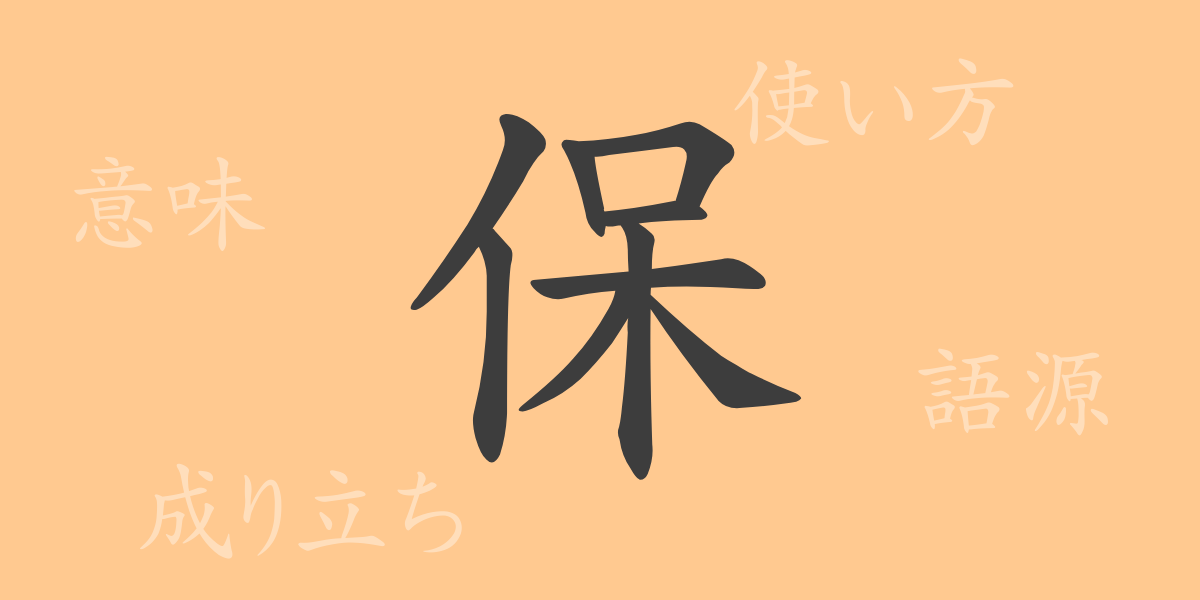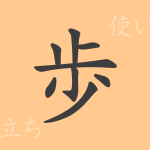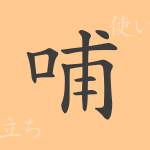The charm of the Japanese language lies in its complexity and richness of expression. The commonly used kanji “保” (ほ, ho) is a prime example of this. In this article, we will explore the origins, meanings, and uses of the character “保” (ほ, ho), as well as words and proverbs that incorporate this kanji. By learning the history and meaning embedded in each kanji, we can deepen our understanding of the Japanese language.
Origins of 保 (ほ, ho)
The kanji “保” (ほ, ho) is a character that originated from ancient China, and its formation is derived from pictographs. Originally, it depicted “a person holding a child,” and it evolved to signify “to protect” or “to maintain.” This kanji reflects the cultural value of continuously protecting important things in people’s lives.
Meanings and Uses of 保 (ほ, ho)
The kanji “保” (ほ, ho) means “to protect,” “to maintain,” and “to preserve.” It is used not only in the context of physical protection but also in abstract concepts such as maintaining health or peace. For example, it is widely used in daily conversations and written language to express maintaining health (“健康を保つ” (けんこうをたもつ, kenkou wo tamotsu)) or maintaining peace (“平和を保つ” (へいわをたもつ, heiwa wo tamotsu)).
Readings, Stroke Count, and Radical of 保 (ほ, ho)
“保” (ほ, ho) is considered one of the fundamental kanji in the Japanese language, and its readings and writing are relatively easy to learn.
- Readings: On’yomi (音読み, おんよみ) is “ホウ” (ほう, hou), Kun’yomi (訓読み, くんよみ) is “たもつ” (たもつ, tamotsu)
- Stroke count: 9 strokes
- Radical: 人部 (ひとがしら, hitogashira)
Compounds, Idioms, and Proverbs Using 保 (ほ, ho)
There are numerous compounds, idioms, and proverbs in Japanese that include “保” (ほ, ho). Here are some examples:
- 保証 (ほしょう, hosho): To guarantee that something will be carried out.
- 保護 (ほご, hogo): To protect from harm and ensure safety.
- 保留 (ほりゅう, horyu): To postpone a decision.
- 保険 (ほけん, hoken): A system to distribute risk in preparation for unforeseen events.
- “身を保つ” (みをたもつ, mi wo tamotsu): To protect oneself and survive.
Conclusion about 保 (ほ, ho)
The kanji “保” (ほ, ho) has evolved through a long history in terms of its form and meaning. Today, we use this kanji to express concepts such as protection, maintenance, and assurance. For learners of Japanese, “保” (ほ, ho) is an essential kanji to understand due to its wide range of uses and cultural background. We hope that through this article, you can appreciate the diverse aspects of “保” (ほ, ho).

























